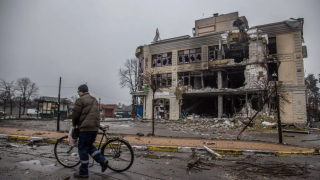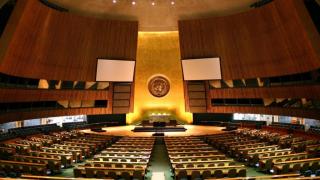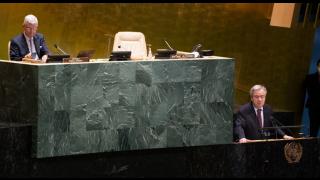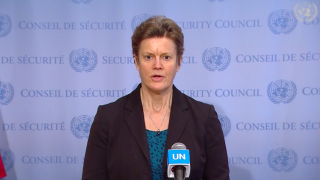
On 19 November 82 countries, including the UK, convened in Dublin to endorse the Political Declaration on the Protection of Civilians from the Use of Explosive Weapons in Populated Areas. UNA-UK welcomes this development, which represents a commitment from a large, cross-regional group of states to take action to protect civilians in conflict.
The Declaration was the result of a long-term advocacy initiative by the International Network on Explosive Weapons (INEW) - of which UNA-UK is a member, alongside the International Committee of the Red Cross (ICRC), the United Nations and progressive member states led by Ireland. In a statement welcoming the Declaration, INEW said:
The use of explosive weapons in populated areas is the leading cause of civilian casualties in armed conflict, and the declaration is the first formal international recognition that this must be addressed urgently and directly. The declaration promotes stronger standards to protect civilians and commits states which endorse it, to take action to implement it by making changes to their national policy and practice, including military policies and operational rules of engagement.”
By endorsing the declaration, states marked their recognition of the harm done to civilians by explosive weapons and expressed their solidarity with the victims of such violence in countries around the world. Delegations echoed this sentiment by repeatedly describing the direct and indirect harms caused explosive weapons used in populated areas in conflicts worldwide, some of them citing violence in specific countries like Syria, Ukraine, and Yemen, and a few – including Somalia, Palestine, and Croatia – taking note of the impact such violence has had on their own country in the past. States also repeatedly expressed their commitment to reduce such suffering in the future, not just through the endorsement of the declaration but through other concrete steps such as support for victim assistance, clearance of unexploded ordnance, and data collection.”
When explosive weapons are used in towns, cities and other populated areas - 90% of victims are civilians. Ukraine is one current example of the devastating consequences civilians face when towns and cities are bombed, but this is a pattern of harm that we have seen across a range of contexts over many years – including in Gaza, Yemen, Syria, Iraq, and Ethiopia.
The Declaration will not immediately address these challenges, but nonetheless, it is a promising example of what can happen when humanitarianism is put at the heart of policy discussions with states, civil society and the UN collaborating around a shared goal. The real challenge will be the work moving forwards as states seek to turn policy into practice and implement the commitment.
In this regard, UNA-UK looks forward to learning from the UK Government how the UK’s policies and the strategies that drive them will change as a result of the Declaration. This should include a review of policies such as arms export controls to ensure they are sensitive to the specific pattern of civilian harm identified in the Declaration as well as the pursuit of opportunities to proactively use its influence on others to further the aims of the Declaration and broaden its support.
Read more:
- The Political Declaration on the Protection of Civilians from the Use of Explosive Weapons in Populated Areas
- INEW’s statement on the Dublin Conference to Adopt the Political Declaration on Explosive Weapons
Photo: Irpin, Kyiv Oblast, Ukraine. April 2022. Credit: Oleksandr Ratushniak / UNDP Ukraine.






